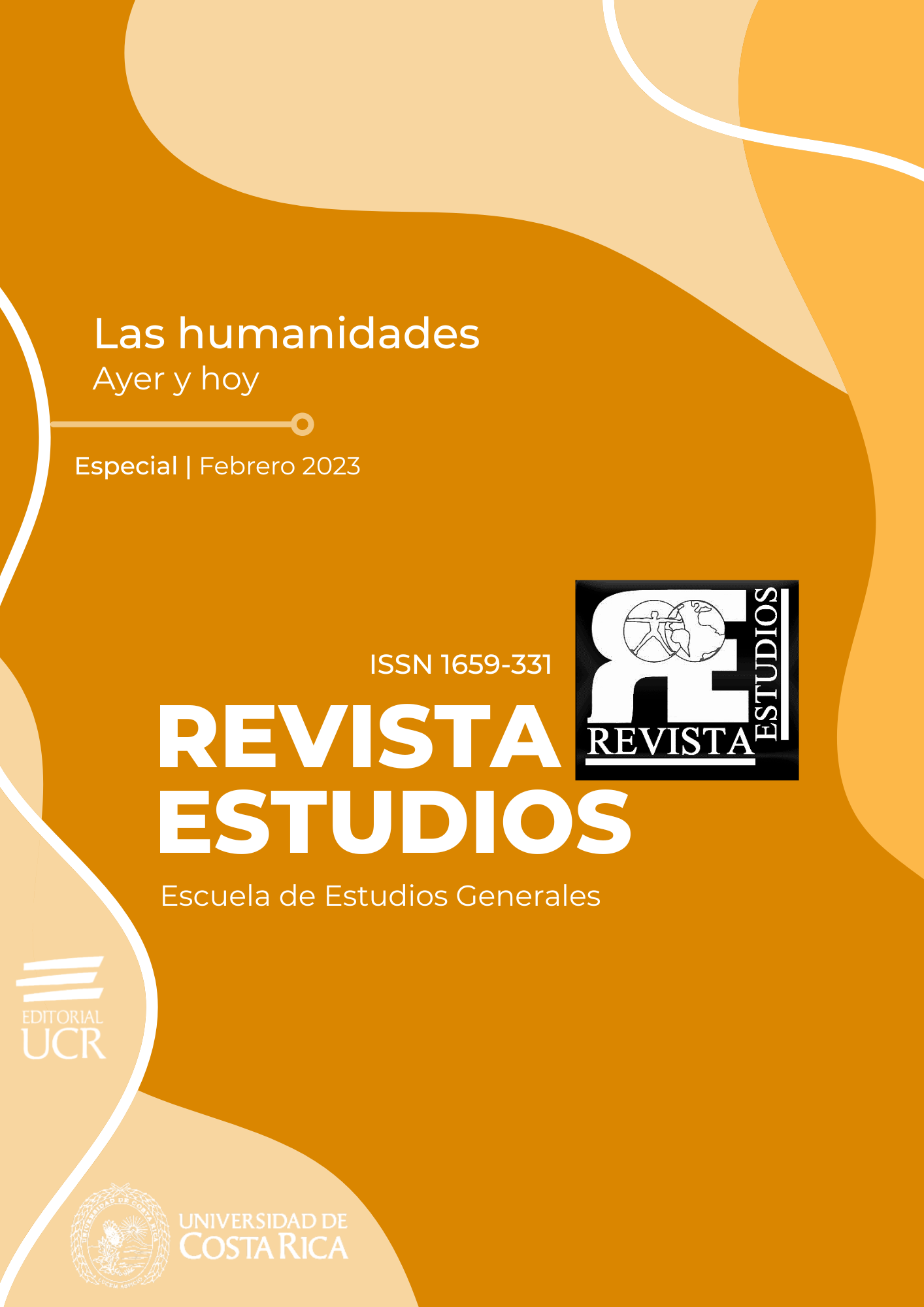Resumen
Para el presente artículo se utiliza un modelo epistemológico (Khalifa, 2017) que proporciona definiciones abiertas de conocimiento y explicación para contrastar la versión científica de estos conceptos con la versión filosófica —conocimiento específicamente científico con conocimiento específicamente filosófico—. A través del contraste se obtienen las particularidades de la explicación en ambas disciplinas, así como los tipos de pregunta que buscan responder —cerradas o abiertas— y los recursos que utilizan para hacerlo —empíricos o conceptuales—. Basado en esto, el argumento central concluye que hay fuertes razones para asumir que la filosofía facilita la enseñanza de habilidades cognitivas y metacognitivas que la enseñanza de la ciencia no cubre, y que son igual de relevantes que las que sí cubre. Además, se evidencia la falta de estudios cuantitativos para respaldar esta conclusión y la importancia de que se efectúen en adelante.
Citas
Akturk, A. O., y Sahin, I. (2011). Literature Review on Metacognition and its Measurement. Procedia - Social and Behavioral Sciences, 15, 3731–3736. https://doi.org/10.1016/j.sbspro.2011.04.364
Dinsmore, D. L., Alexander, P. A., y Loughlin, S. M. (2008). Focusing the Conceptual Lens on Metacognition, Self-regulation, and Self-regulated Learning. Educational Psychology Review, 20(4), 391–409. https://doi.org/10.1007/s10648-008-9083-6
Floridi, L. (2008). The Method of Levels of Abstraction. Minds and Machines, 18(3), 303-329.
Floridi, L. (2013). What is a philosophical question?. Metaphilosophy, 44(3), 195-221.
García-Moriyón, F., Rebollo, I., y Colom, R. (2005). Evaluating Philosophy for Children: A Meta-Analysis. Thinking: The Journal of Philosophy for Children, 17(4), 14–22. https://doi.org/10.5840/thinking20051743
Geelan, D. (2012). Teacher Explanations. En B. J. Fraser, K. Tobin, y C. J. McRobbie (Eds.), Second International Handbook of Science Education (pp. 987–999). Springer Netherlands. https://doi.org/10.1007/978-1-4020-9041-7_65
Gettier, E. (1963). Is Justified True Belief Knowledge? Analysis, 23(6), 121–123.
Gilbert, J. K. (2005). Visualization: A Metacognitive Skill in Science and Science Education. En J. K. Gilbert (Ed.), Visualization in Science Education (pp. 9–27). Springer Netherlands. https://doi.org/10.1007/1-4020-3613-2_2
Grüne-Yanoff, T. (2014). Teaching philosophy of science to scientists: Why, what and how. European Journal for Philosophy of Science, 4(1), 115–134. https://doi.org/10.1007/s13194-013-0078-x
Hofer, T., Przyrembel, H., y Verleger, S. (2004). New evidence for the Theory of the Stork. Paediatric and Perinatal Epidemiology, 18(1), 88–92. https://doi.org/10.1111/j.1365-3016.2003.00534.x
Holbrook, J., y Rannikmae, M. (2007). The Nature of Science Education for Enhancing Scientific Literacy. International Journal of Science Education, 29(11), 1347–1362. https://doi.org/10.1080/09500690601007549
Kaplan, A. (2008). Clarifying Metacognition, Self-Regulation, and Self-Regulated Learning: What’s the Purpose? Educational Psychology Review, 20(4), 477–484. https://doi.org/10.1007/s10648-008-9087-2
Khalifa, K. (2017). Understanding, Explanation, and Scientific Knowledge. Cambridge University Press. https://doi.org/10.1017/9781108164276.
Kornblith, H. (2010). Belief in the Face of Controversy. En Disagreement, ed. Feldman, R. y Warfield, T. 29 - 52. Oxford: Oxford University Press.
Lange, M. (2013). What makes a scientific explanation distinctively mathematical?. The British Journal for the Philosophy of Science, 64, 485-511.
Norris, T. (2015). Philosophical Questions about Teaching Philosophy: What’s at Stake in High School Philosophy Education? Philosophical Inquiry in Education, 23(1), 62–72. https://doi.org/10.7202/1070366ar
Plant, B. (2012). Philosophical diversity and disagreement. Metaphilosophy, 43(5), 567-591.
Rawls, J. (1999). A Theory of Justice. Harvard University Press.
Rescher, N. (1985). The strife of systems: An essay on the grounds and implications of philosophical diversity. University of Pittsburgh Press.
Reutlinger, A. (2017). Explanation beyond causation? New directions in the philosophy of scientific explanation. Philosophy Compass, 12(2), 1-11. https://doi.org/10.1111/phc3.12395
Salmon, W. C. (1984). Scientific explanation and the causal structure of the world. Princeton University Press.
Stokes, P. (2012). Philosophy Has Consequences!: Developing Metacognition and Active Learning in the Ethics Classroom. Teaching Philosophy, 35(2), 143–169. https://doi.org/10.5840/teachphil201235216
Topping, K. J., y Trickey, S. (2014). The role of dialog in philosophy for children. International Journal of Educational Research, 63, 69–78. https://doi.org/10.1016/j.ijer.2013.01.002
Trickey, S., y Topping, K. J. (2004). ‘Philosophy for children’: A systematic review. Research Papers in Education, 19(3), 365–380. https://doi.org/10.1080/0267152042000248016
Van Fraassen, B. (1980). The scientific image. Oxford University Press
Williamson, T. (2011). Knowledge First Epistemology. En Sven Bernecker y Duncan Pritchard (eds.), The Routledge Companion to Epistemology. Routledge. pp. 208-218.
Williamson, T. (2017). Model‐Building in Philosophy. En R. Blackford y D. Broderick (Eds.), Philosophy’s Future (1a ed., pp. 159–171). Wiley. https://doi.org/10.1002/9781119210115.ch12
Woodward, J. y Ross, L. (2021). Scientific Explanation. The Stanford Encyclopedia of Philosophy. N. Zalta (ed.). https://plato.stanford.edu/archives/sum2021/entries/scientific-explanation/
Woodward, J. (2003). Making things happen. Oxford University Press.
Yan, S., Walters, L. M., Wang, Z., y Wang, C.-C. (2018). Meta-Analysis of the Effectiveness of Philosophy for Children Programs on Students’ Cognitive Outcomes. Analytic Teaching and Philosophical Praxis, 39(1), Art. 1.
Zohar, A. y Barzilai, S. (2013). A review of research on metacognition in science education: Current and future directions. Studies in Science Education, 49(2), 121–169. https://doi.org/10.1080/03057267.2013.847261

